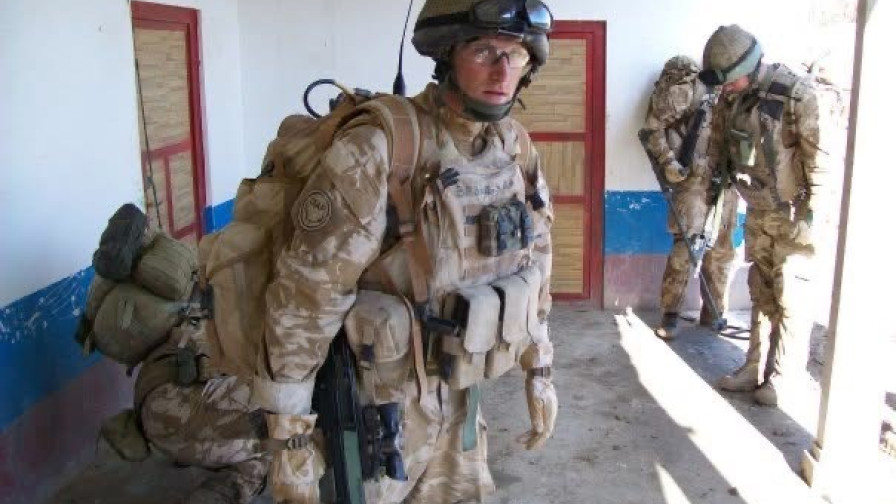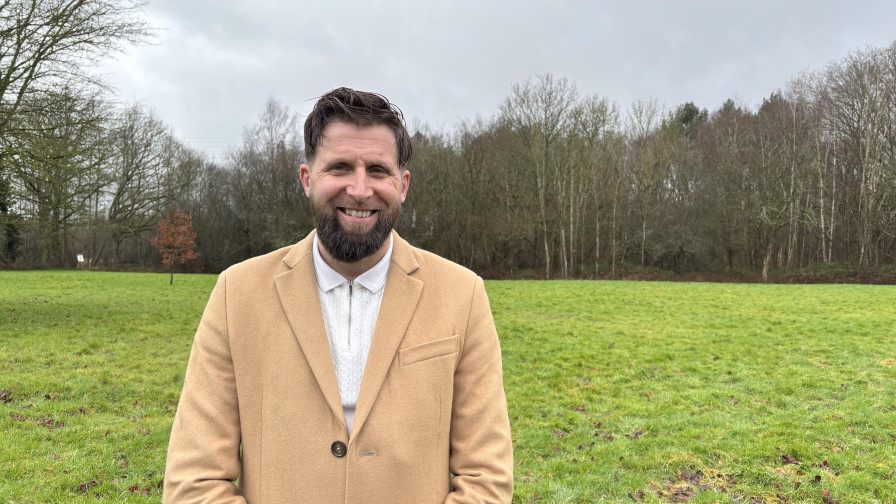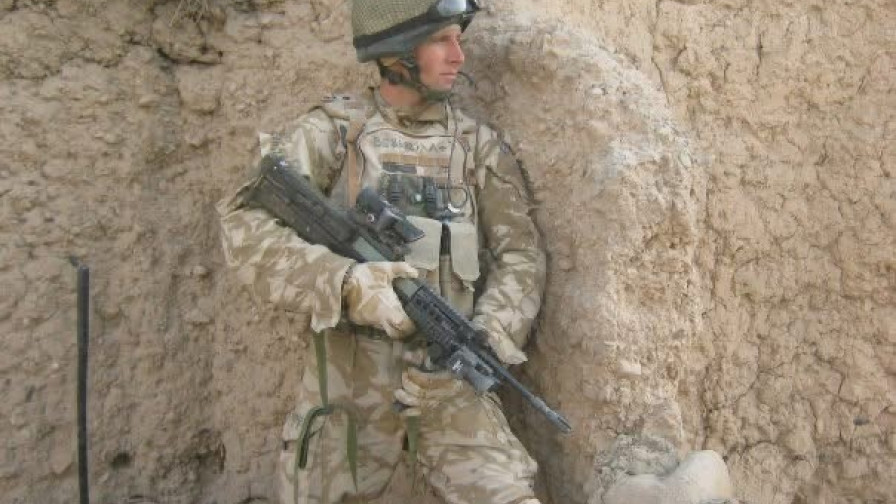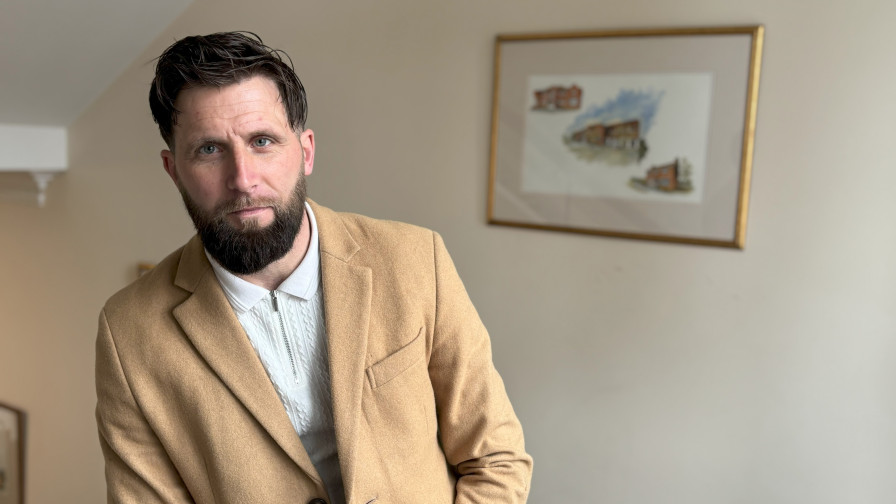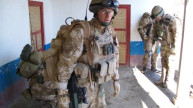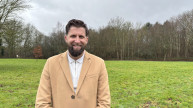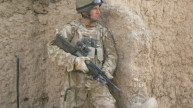Gaz's Story
“I now live a life I actually enjoy.”
Army veteran Gaz’s tour of Afghanistan changed the course of his life. For years after, he was crippled by PTSD, which ruined his relationships and left him not caring whether he lived or died. Here he talks about how our expert mental health treatment has changed everything.
Gaz joined the Army at 16 to escape the life he was living at home. “Where I grew up, everyone who left school went to work at the local shipyard,” he says. “That wasn’t for me, so I left school in July 2004 and joined the Army that September.”
Gaz served for 12 years, which included a tour of Iraq in 2007-2008 as part of Op Telic 11 and Afghanistan in 2009-10 for Op Herrick. “The two tours were completely different,” Gaz says. “I probably fired my rifle a couple of times in Iraq, but in Afghanistan it was more like a couple of times every day. The atmosphere felt more energised and IEDs were big things out there – we lost a few lads because of them, and more were injured.”
During his tour of Afghanistan, there was an incident during morning sentry duty where Gaz was repeatedly shot at while he was on a roof with no escape.
“I was a sitting target,” he says. “There was no cover and it was difficult to fire in that position. I couldn’t get to a safe place and you could just hear rounds whizzing by your head, then they’d hit next to you.”
Gaz returned from Afghanistan in 2010 and the strain started to show. He noticed changes in himself, like waking up tired even though he had slept. “I started having dreams, which got more vivid,” he says. “I drank alcohol to escape and was avoiding going to bed to stop the nightmares. I closed myself off to people and was just lost.”
Gaz’s relationships started to fall apart and in 2012 his marriage ended. He sought help in the Army but ended up with what he describes as “box ticking care”. “They put it down to stress and gave me sleeping tablets,” he says. “I would go to bed and cry - just walking in the bedroom gave me anxiety because I associated sleep with the nightmares.”
By 2015 Gaz started to experience flashbacks and was asking himself searching questions. “Why was I still here? Why didn’t I get shot?” Gaz says. “One night I found myself standing on a bridge, watching the traffic drive underneath. Then I thought ‘this could all be over if I jump’ and found myself calculating when to jump to make sure I was hit by a lorry.”
Gaz didn’t jump and instead made a choice to get help, so went to hospital. He was placed in a civilian psychiatric ward for four weeks, before being diagnosed with PTSD and given a treatment plan by the Army in the lead up to a medical discharge.
However, the treatment didn’t work for Gaz and once he left the Army in 2016, he found himself back on Civvy Street with worsening symptoms.
He wasn’t leaving the house as he feared being in public and would stay awake for days to avoid the nightmares, before his body would crash out in exhaustion.
He was on medication but took an overdose after a meal to celebrate his birthday in 2019 - not necessarily intending to kill himself “but I didn’t really care if I woke up in the morning.” Gaz was found by friends, who after calling 999 contacted our Helpline to try to get him help.
“I already knew Combat Stress as I’d done some fundraising for them through work,” Gaz says. “They couldn’t help me at that point as I was a suicide risk and they need you to be stable, so I had help through the NHS to stabilise me. I struggled but eventually got to the point where Combat Stress could help. It felt like an opportunity to change my life.”
Gaz’s treatment began in 2019 at our England South hub, with a course on understanding PTSD and 1:1 treatment with a psychologist, before undertaking our intensive residential treatment programme. “After the treatment I was in a much better place, but I still hadn’t got to grips with how the PTSD was affecting my life,” he says. “I still couldn’t go to busy places and was very hypervigilant.”
Gaz started having sessions with Christie, one of our Occupational Therapists. “I can’t speak highly enough about those sessions,” Gaz said. “I felt like Christie made all my problems disappear.
At first, I was sceptical about some of the things she was asking me to do to ground me, like put smells on a handkerchief to carry with me or eat mints if I was anxious. I just couldn’t see how that would be helpful, but she built trust with me and made me want to try it. We started small, and it was a gradual process, but then I realised all the little things I’d achieved were getting bigger.”
Gaz has completed treatment now and is thankful for the changes to his life. “I travel to Spain a lot for work and before, the thought of being in an airport with all those people would have been horrendous,” he says. “I’d have been constantly looking around and would need to sit in the corner, on edge the whole time. Now, I’ve learned how to deal with that situation and bring myself down a calmer level.
“I don't know how to describe how much treatment has changed my life. I’ve gone from making a choice with a life-ending effect and not even caring, to being able to live a normal life - and one that I actually enjoy.”
January 2025

